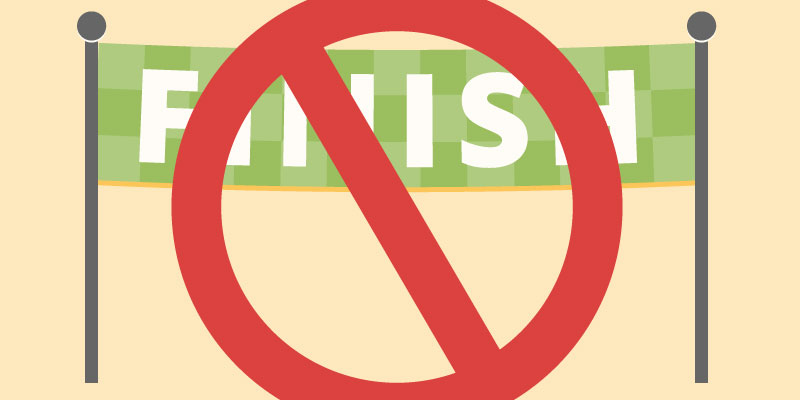If you’ve read this site for any period of time, you know that I like to set goals for myself, both for the year and each month. You’ll also know that I sometimes fail to achieve goals that I set for myself. The F word. Fail. A big no-no. Right?
Wrong. Failing to achieve one’s goals gets a really bad rap. We’re constantly bombarded with messages about achieving our goals: why we should, how we should do it, what it says about us as people. While I believe in the importance of setting and achieving realistic stretch goals, I do think it’s okay to fail to achieve goals that we set for ourselves.
Believing that we’re going to achieve every single goal we set for ourselves only sets us up for failure. Things happen. We can try our hardest and still fail to achieve goals that we set for ourselves. This is why I think it’s important to remember that, sometimes, it’s okay to fail.
5 Reasons It’s Okay to Fail to Achieve Goals
1. Practice in failing
Millennials have a reputation for not being able to handle failure, criticism or critique. If you’re a Millennial, start proving the Man wrong! By not achieving every goal, you’re practicing in failure. You find out what it’s like. You learn how to deal with it. You learn how to do things differently so that you don’t fail next time. This small-scale failure can help you build the tools you need for if there every is a time when you really FAIL (which I hope there won’t be!).
2. Motivation to try harder next time
Failing to achieve a goal is a great motivator. If you didn’t achieve what you set out to achieve, it’s motivation to try harder next time. Failing gives you a benchmark that you can use to adjust your methods of achieving your goal going forward. You did it this way and didn’t achieve your goal? Well, let’s try this other way and see what happens.
3. Achieving every goal means they’re too easy
You shouldn’t want to achieve every goal you set for yourself. Why? Because it means that your goals are too easy. It’s definitely a confidence booster to achieve every goal you set. However, it brings into question the nature of your goals. Are you creating SMART goals? Are you creating realistic stretch goals? Obviously, you don’t want to set goals that are so difficult that you can’t possibly achieve any, but part of the fun of goals is the challenge they present.
4. Priorities change
As we create goals and work towards them, time moves as well. As time flies past us, our priorities may change. A goal made 3 months ago may not be as important or as relevant as we thought when we first made it. When this is the case, you may choose to no longer attempt to achieve that goal. And that’s okay. It doesn’t make you a failure, it just means that you’re aware of your priorities.
5. Failing builds resiliency
To quote Chumbawumba (yes, Chumbawumba): “I get knocked down / I get up again / You’re never going to keep me down.” This is how I feel about goals that I fail to make. Not only do I want to try harder, I get better at picking myself up after I’ve failed. The more you fail, the more it sucks, but the more resiliency you build. Little failure? Bring it. Big failure? You’re never going to keep me down.




